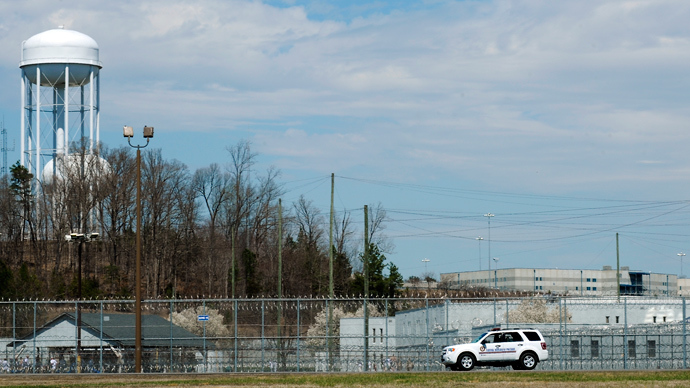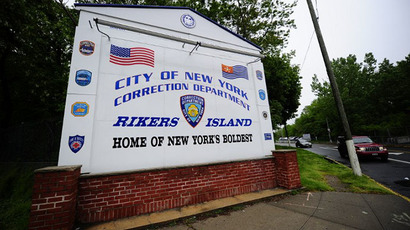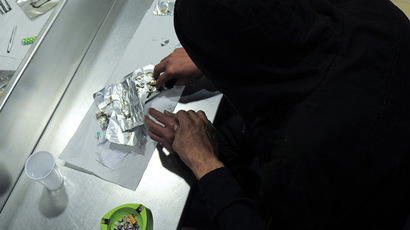US prisons hold 10 times more mentally ill people than state hospitals – report

More than 356,000 people with mental illnesses are incarcerated in the United States, as opposed to around 35,000 receiving treatment in state hospitals, a new study found, highlighting the dire state of the nation’s mental health care system.
The lead author of the report, conducted by the Treatment Advocacy Center and the National Sheriffs’ Association, said the ten-to-one ratio of patients in prison versus those receiving qualified care is on par with the US mental health system of the 1830s.
“We’ve basically gone back to where we were 170 years ago,” Dr. E. Fuller Torrey, founder of the Treatment Advocacy Center, told Kaiser Health News. “We are doing an abysmal job of treating people with serious mental illnesses in this country. It is both inhumane and shocking the way we have dumped them into the state prisons and the local jails.”
The report found 44 states and the District of Columbia have at least one jail that holds more people coping with a mental illness than the largest state psychiatric hospital in the US does.
As states have drastically cut funding for mental health services in the last several years, the number of available beds in psychiatric hospitals has plunged to the lowest level since 1850.
Thus, many of these patients are shuffled into the prison system simply because there is nowhere else for them to go. The US prison population has steadily increased as mental health funding has decreased, the National Alliance on Mental Illness has found.
Prisoners with mental health issues are often put in solitary confinement for long periods of time, stay incarcerated longer than other prisoners, and are disproportionately abused, beaten, and raped by other inmates, the new report noted. Without treatment, the condition of ill inmates often worsens.
Since 1970, the percentage of prisoners with mental illnesses in each state has risen an average of about 5 to 20 percent, the report found.
“There is not a single state in the United States where you want to go to a jail or prison and be severely mentally ill,” said Torrey.
State laws often hamper care that a facility can offer a prisoner.
“Jail officials can thus be legally sued in many states if they forcibly medicate mentally ill prisoners without their consent, yet can also be held legally responsible for the consequences of such prisoners’ psychotic behavior,” including suicide, the report said.
Though, ultimately, prisons and jails are not equipped to handle those that need mental health treatment, especially those that are persistent in refusing the reduced care that an incarceration facility can offer, the report found.
“We have placed more than 300,000 severely mentally ill individuals in prisons and jails that are neither equipped nor staffed to handle such problems,” the report stated. “We subsequently have made it very difficult to treat the mentally ill inmates, put restriction on other options for controlling their behavior, and then blamed the prison and jail administrators when they fail. It is a situation that is grossly unfair to both the inmates and the corrections officials and should be the subject of public outrage and official action.”
Another recent study found that housing mental health patients in jails is not cheaper than funding hospitals, as many states have insisted. Giving adequate psychiatric mental health care saves money over time and keeps patients out of jail, according to researchers from North Carolina State University and the University of South Florida.
ThinkProgress noted that many states have refused to expand Medicaid coverage offered through the federal Affordable Care Act, thus preventing around 1.2 million Americans from receiving mental health care, according to the National Alliance on Mental Health.














